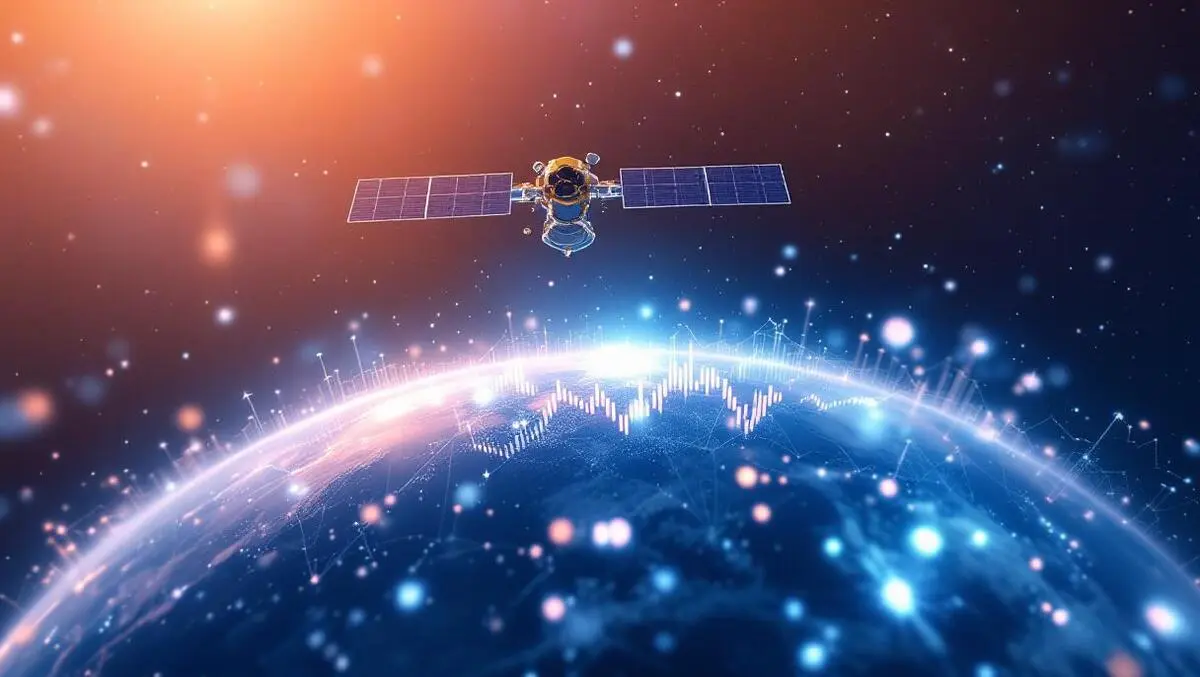
Earth intelligence market to surpass USD $4.2 billion by 2030
The global Earth intelligence market is expected to reach annual revenues exceeding USD $4.2 billion by 2030, rising from nearly USD $3.8 billion in 2025, according to a forecast by research firm Gartner.
Gartner's projections indicate that, over the five-year period from 2025 to 2030, direct revenue opportunities for technology product and service providers in Earth intelligence could total close to USD $20 billion. These figures only account for direct revenue from Earth intelligence data, related analysis services, and software applications. Wider impacts, such as productivity gains and avoiding operational costs, are not included in the estimates.
Definition and examples
Earth intelligence is defined by Gartner as the application of artificial intelligence to data harvested from Earth observation methods to deliver insights tailored for specific industries and business functions. This process involves the capture of large volumes of raw data from satellites, sensors, and drones, transforming that data for particular purposes, and then employing domain-specific AI tools and applications to generate actionable intelligence.
Describing current applications, Bill Ray, Distinguished Vice President Analyst at Gartner, stated: "The future of Earth intelligence will be won by the vendors that move quickly to develop technologies that make sense of the oceans of raw data they collect. The value of Earth intelligence data is only now being realised."
"For example, vendors are leveraging satellites to pinpoint fallen trees blocking railroad tracks in a storm, monitoring the temperature of every metal refinery to assess global production, counting vehicles to analyse traffic patterns and consumer trends, and tracking sea cargo to evaluate shipping activity. These unprecedented insights are delivering immense value, and new use cases are being discovered daily as the AI vendor race intensifies with the ever expanding volume of available data."
Shifting market focus
Historically, governments have been the primary collectors and analysts of Earth intelligence data. According to Gartner's latest outlook, enterprises are poised to surpass governments and defence organisations in spending on Earth intelligence by 2030, making up more than half of the total market. This is a considerable change from 2024, when the private sector accounted for less than 15%.
Ray commented on the changing business landscape: "As private technology and service providers begin to dominate Earth intelligence, they have the opportunity to sell data, models and applications to companies that lack the resources to analyse data for themselves. Earth intelligence will lead to new markets and offerings for data, models, standalone tools and applications, as well as capabilities to embed within existing applications. This represents a massive business opportunity for technology product and service providers."
Technological drivers
The evolution of satellite technology is a central factor in the expansion of the Earth intelligence market. Lower-cost, very low Earth orbit (VLEO) satellites are now being deployed, providing improved image resolution and more frequent monitoring capabilities. According to Gartner, radar and hyperspectral imaging now allow for observations previously not possible, while the revisit interval of satellites can be as short as one hour. Private companies' experiments with VLEO suggest resolutions as fine as 10 centimetres, sufficient to detect small objects from space.
Ray additionally noted: "This is driving, and will continue to drive, massive amounts of Earth observation data. Combining satellite data with ground observation data from sensors and drones further enhances the value of Earth intelligence. This is where AI plays a critical role. Unlike many domains, there is a plethora of data. But that data needs to be engineered into fit-for-purpose information to feed industry and function specific AI models."
Gartner's research suggests that as AI technologies mature and data processing capabilities expand, more industries will seek targeted Earth intelligence solutions for operational and strategic decision-making.


